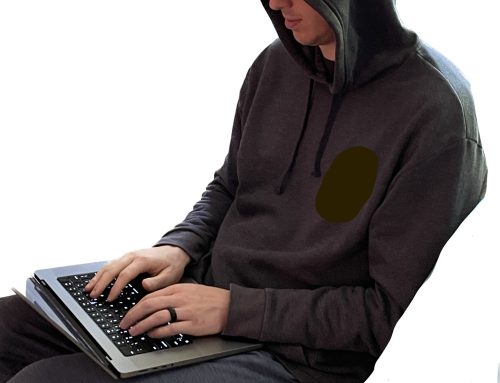
“
It was the most devastating discovery of my life”. Chrissy Chambers was only 22 when her world was turned upside down. Chrissy is a strikingly attractive girl from Georgia, USA, tall with long brown hair and was setting out on a career in broadcasting and media campaigning. News reached her via a friend that her ex-boyfriend had made secret videos of them having sex when she was just 18. After their relationship ended, he uploaded them onto 35 separate host sites, some including her full name. They have been up since 2011, have been viewed in the tens of thousands now and have consistently featured high up on a Google search of her name.
The effect was devastating on Chrissy, who continues to run a YouTube channel with her girlfriend of 4 years, Bria, and has over 36,000 subscribers. Their relationship almost ended and she now admits to drinking to excess to block the trauma.
The ex-boyfriend is British and the videos appear to have been uploaded in Britain. Whilst it has until recently been little understood that victims of revenge porn have always had legal remedies in the UK, they are now even stronger.
On 13 April 2015 section 33 of the Criminal Justice and Courts Act came into force making it a criminal offence to publish sexual photographs or film of another person without their consent and which is intended to cause the victim distress. It does not stop there as others who share the material after it was uploaded will be caught if they cannot give any good reason why they assumed the victim consented to publication.
Sadly, the change comes too late for Chrissy to report this as an offence to the Police under this Act. Whilst Chrissy has bravely gone public with her experience and campaigns for an end to revenge porn, that should not be the end of the road for the pursuit of justice here in the UK.
Griffin Law has acted for clients in similar cases and made use of an array of legal weaponry: private civil remedies under Section 3 of The Protection from Harassment Act 1997, breach of confidence and conspiracy to injure torts, and criminal remedies under Section 1 of The Malicious Communications Act 1988 and Section 127 of The Communications Act 2003.
Perpetrators who hide their identity when doing this should not be allowed to feel safe. Griffin Law broke new ground by successfully obtaining permission from the High Court to serve an anti-harassment injunction via an anonymous Twitter account. That is far from a pyrrhic victory as we have also successfully compelled Google and other internet service providers to hand over IP addresses of email accounts used for malicious publications on social media and, from that, have obtained their real name and address to send the bailiffs and now potentially the Police to knock on their door.
Griffin Law is a dispute resolution firm comprising innovative, proactive, tenacious and commercially-minded lawyers. We pride ourselves on our close client relationships, which are uniquely enhanced by our transparent fee guarantee and a commitment to share the risks of litigation. If you have any specific questions regarding a property dispute, please email justice@griffin.law or call 01732 52 59 23.
GRIFFIN LAW – TRANSPARENT FEES. TENACIOUS LAWYERS. TRUSTED PARTNERS.
© Griffin Law Limited, 2022. All rights reserved.
 “It was the most devastating discovery of my life”. Chrissy Chambers was only 22 when her world was turned upside down. Chrissy is a strikingly attractive girl from Georgia, USA, tall with long brown hair and was setting out on a career in broadcasting and media campaigning. News reached her via a friend that her ex-boyfriend had made secret videos of them having sex when she was just 18. After their relationship ended, he uploaded them onto 35 separate host sites, some including her full name. They have been up since 2011, have been viewed in the tens of thousands now and have consistently featured high up on a Google search of her name.
The effect was devastating on Chrissy, who continues to run a YouTube channel with her girlfriend of 4 years, Bria, and has over 36,000 subscribers. Their relationship almost ended and she now admits to drinking to excess to block the trauma.
The ex-boyfriend is British and the videos appear to have been uploaded in Britain. Whilst it has until recently been little understood that victims of revenge porn have always had legal remedies in the UK, they are now even stronger.
On 13 April 2015 section 33 of the Criminal Justice and Courts Act came into force making it a criminal offence to publish sexual photographs or film of another person without their consent and which is intended to cause the victim distress. It does not stop there as others who share the material after it was uploaded will be caught if they cannot give any good reason why they assumed the victim consented to publication.
Sadly, the change comes too late for Chrissy to report this as an offence to the Police under this Act. Whilst Chrissy has bravely gone public with her experience and campaigns for an end to revenge porn, that should not be the end of the road for the pursuit of justice here in the UK.
Griffin Law has acted for clients in similar cases and made use of an array of legal weaponry: private civil remedies under Section 3 of The Protection from Harassment Act 1997, breach of confidence and conspiracy to injure torts, and criminal remedies under Section 1 of The Malicious Communications Act 1988 and Section 127 of The Communications Act 2003.
Perpetrators who hide their identity when doing this should not be allowed to feel safe. Griffin Law broke new ground by successfully obtaining permission from the High Court to serve an anti-harassment injunction via an anonymous Twitter account. That is far from a pyrrhic victory as we have also successfully compelled Google and other internet service providers to hand over IP addresses of email accounts used for malicious publications on social media and, from that, have obtained their real name and address to send the bailiffs and now potentially the Police to knock on their door.
Griffin Law is a dispute resolution firm comprising innovative, proactive, tenacious and commercially-minded lawyers. We pride ourselves on our close client relationships, which are uniquely enhanced by our transparent fee guarantee and a commitment to share the risks of litigation. If you have any specific questions regarding a property dispute, please email justice@griffin.law or call 01732 52 59 23.
“It was the most devastating discovery of my life”. Chrissy Chambers was only 22 when her world was turned upside down. Chrissy is a strikingly attractive girl from Georgia, USA, tall with long brown hair and was setting out on a career in broadcasting and media campaigning. News reached her via a friend that her ex-boyfriend had made secret videos of them having sex when she was just 18. After their relationship ended, he uploaded them onto 35 separate host sites, some including her full name. They have been up since 2011, have been viewed in the tens of thousands now and have consistently featured high up on a Google search of her name.
The effect was devastating on Chrissy, who continues to run a YouTube channel with her girlfriend of 4 years, Bria, and has over 36,000 subscribers. Their relationship almost ended and she now admits to drinking to excess to block the trauma.
The ex-boyfriend is British and the videos appear to have been uploaded in Britain. Whilst it has until recently been little understood that victims of revenge porn have always had legal remedies in the UK, they are now even stronger.
On 13 April 2015 section 33 of the Criminal Justice and Courts Act came into force making it a criminal offence to publish sexual photographs or film of another person without their consent and which is intended to cause the victim distress. It does not stop there as others who share the material after it was uploaded will be caught if they cannot give any good reason why they assumed the victim consented to publication.
Sadly, the change comes too late for Chrissy to report this as an offence to the Police under this Act. Whilst Chrissy has bravely gone public with her experience and campaigns for an end to revenge porn, that should not be the end of the road for the pursuit of justice here in the UK.
Griffin Law has acted for clients in similar cases and made use of an array of legal weaponry: private civil remedies under Section 3 of The Protection from Harassment Act 1997, breach of confidence and conspiracy to injure torts, and criminal remedies under Section 1 of The Malicious Communications Act 1988 and Section 127 of The Communications Act 2003.
Perpetrators who hide their identity when doing this should not be allowed to feel safe. Griffin Law broke new ground by successfully obtaining permission from the High Court to serve an anti-harassment injunction via an anonymous Twitter account. That is far from a pyrrhic victory as we have also successfully compelled Google and other internet service providers to hand over IP addresses of email accounts used for malicious publications on social media and, from that, have obtained their real name and address to send the bailiffs and now potentially the Police to knock on their door.
Griffin Law is a dispute resolution firm comprising innovative, proactive, tenacious and commercially-minded lawyers. We pride ourselves on our close client relationships, which are uniquely enhanced by our transparent fee guarantee and a commitment to share the risks of litigation. If you have any specific questions regarding a property dispute, please email justice@griffin.law or call 01732 52 59 23.
 “It was the most devastating discovery of my life”. Chrissy Chambers was only 22 when her world was turned upside down. Chrissy is a strikingly attractive girl from Georgia, USA, tall with long brown hair and was setting out on a career in broadcasting and media campaigning. News reached her via a friend that her ex-boyfriend had made secret videos of them having sex when she was just 18. After their relationship ended, he uploaded them onto 35 separate host sites, some including her full name. They have been up since 2011, have been viewed in the tens of thousands now and have consistently featured high up on a Google search of her name.
The effect was devastating on Chrissy, who continues to run a YouTube channel with her girlfriend of 4 years, Bria, and has over 36,000 subscribers. Their relationship almost ended and she now admits to drinking to excess to block the trauma.
The ex-boyfriend is British and the videos appear to have been uploaded in Britain. Whilst it has until recently been little understood that victims of revenge porn have always had legal remedies in the UK, they are now even stronger.
On 13 April 2015 section 33 of the Criminal Justice and Courts Act came into force making it a criminal offence to publish sexual photographs or film of another person without their consent and which is intended to cause the victim distress. It does not stop there as others who share the material after it was uploaded will be caught if they cannot give any good reason why they assumed the victim consented to publication.
Sadly, the change comes too late for Chrissy to report this as an offence to the Police under this Act. Whilst Chrissy has bravely gone public with her experience and campaigns for an end to revenge porn, that should not be the end of the road for the pursuit of justice here in the UK.
Griffin Law has acted for clients in similar cases and made use of an array of legal weaponry: private civil remedies under Section 3 of The Protection from Harassment Act 1997, breach of confidence and conspiracy to injure torts, and criminal remedies under Section 1 of The Malicious Communications Act 1988 and Section 127 of The Communications Act 2003.
Perpetrators who hide their identity when doing this should not be allowed to feel safe. Griffin Law broke new ground by successfully obtaining permission from the High Court to serve an anti-harassment injunction via an anonymous Twitter account. That is far from a pyrrhic victory as we have also successfully compelled Google and other internet service providers to hand over IP addresses of email accounts used for malicious publications on social media and, from that, have obtained their real name and address to send the bailiffs and now potentially the Police to knock on their door.
Griffin Law is a dispute resolution firm comprising innovative, proactive, tenacious and commercially-minded lawyers. We pride ourselves on our close client relationships, which are uniquely enhanced by our transparent fee guarantee and a commitment to share the risks of litigation. If you have any specific questions regarding a property dispute, please email justice@griffin.law or call 01732 52 59 23.
“It was the most devastating discovery of my life”. Chrissy Chambers was only 22 when her world was turned upside down. Chrissy is a strikingly attractive girl from Georgia, USA, tall with long brown hair and was setting out on a career in broadcasting and media campaigning. News reached her via a friend that her ex-boyfriend had made secret videos of them having sex when she was just 18. After their relationship ended, he uploaded them onto 35 separate host sites, some including her full name. They have been up since 2011, have been viewed in the tens of thousands now and have consistently featured high up on a Google search of her name.
The effect was devastating on Chrissy, who continues to run a YouTube channel with her girlfriend of 4 years, Bria, and has over 36,000 subscribers. Their relationship almost ended and she now admits to drinking to excess to block the trauma.
The ex-boyfriend is British and the videos appear to have been uploaded in Britain. Whilst it has until recently been little understood that victims of revenge porn have always had legal remedies in the UK, they are now even stronger.
On 13 April 2015 section 33 of the Criminal Justice and Courts Act came into force making it a criminal offence to publish sexual photographs or film of another person without their consent and which is intended to cause the victim distress. It does not stop there as others who share the material after it was uploaded will be caught if they cannot give any good reason why they assumed the victim consented to publication.
Sadly, the change comes too late for Chrissy to report this as an offence to the Police under this Act. Whilst Chrissy has bravely gone public with her experience and campaigns for an end to revenge porn, that should not be the end of the road for the pursuit of justice here in the UK.
Griffin Law has acted for clients in similar cases and made use of an array of legal weaponry: private civil remedies under Section 3 of The Protection from Harassment Act 1997, breach of confidence and conspiracy to injure torts, and criminal remedies under Section 1 of The Malicious Communications Act 1988 and Section 127 of The Communications Act 2003.
Perpetrators who hide their identity when doing this should not be allowed to feel safe. Griffin Law broke new ground by successfully obtaining permission from the High Court to serve an anti-harassment injunction via an anonymous Twitter account. That is far from a pyrrhic victory as we have also successfully compelled Google and other internet service providers to hand over IP addresses of email accounts used for malicious publications on social media and, from that, have obtained their real name and address to send the bailiffs and now potentially the Police to knock on their door.
Griffin Law is a dispute resolution firm comprising innovative, proactive, tenacious and commercially-minded lawyers. We pride ourselves on our close client relationships, which are uniquely enhanced by our transparent fee guarantee and a commitment to share the risks of litigation. If you have any specific questions regarding a property dispute, please email justice@griffin.law or call 01732 52 59 23.




